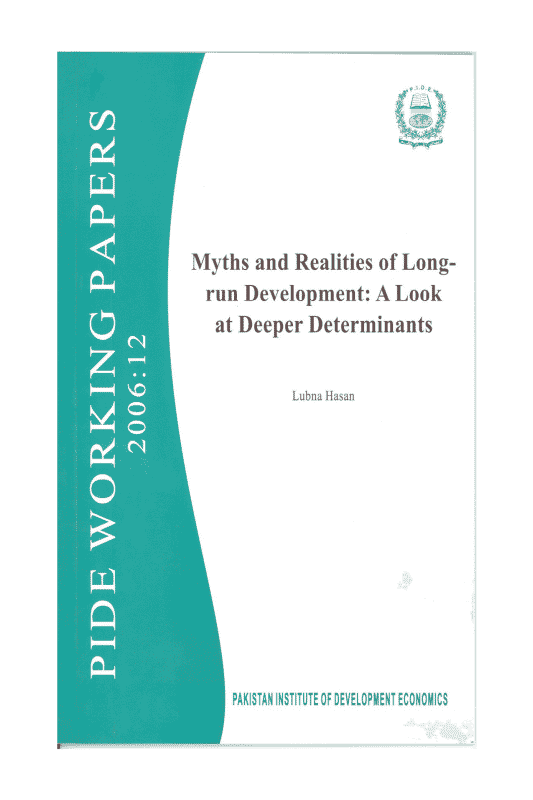Myths and Realities of Long-run Development: A Look aft Deeper Determinants
It has long been realised that factor accumulation and technological development are only proximate causes of economic development, and focus has now shifted to investigating the ‘deeper determinants’ of economic growth. Two such forces are highlighted in literature: institutions and geography. However, it remains controversial as to which of these two is the more important. The “Institutions school” assigns primal importance to institutions, whereas the “Geography school” considers geographical factors as the primary determinant of economic performance of countries. This paper reviews the debate surrounding these “deeper determinants” of economic performance. It reviews the work of these two schools of thought and their interpretation of the long-run development. The paper then examines the evidence provided by the respective schools in favour of their hypotheses. It concludes in favour of the Institutions hypothesis as the Geography school does not provide a consistent story of long-run development.




